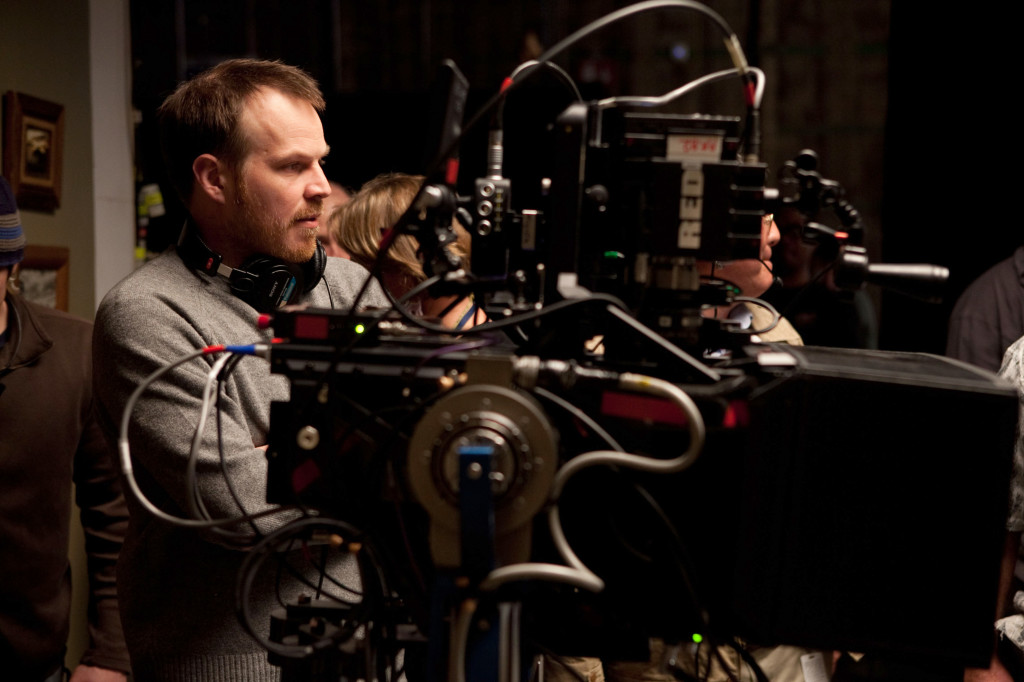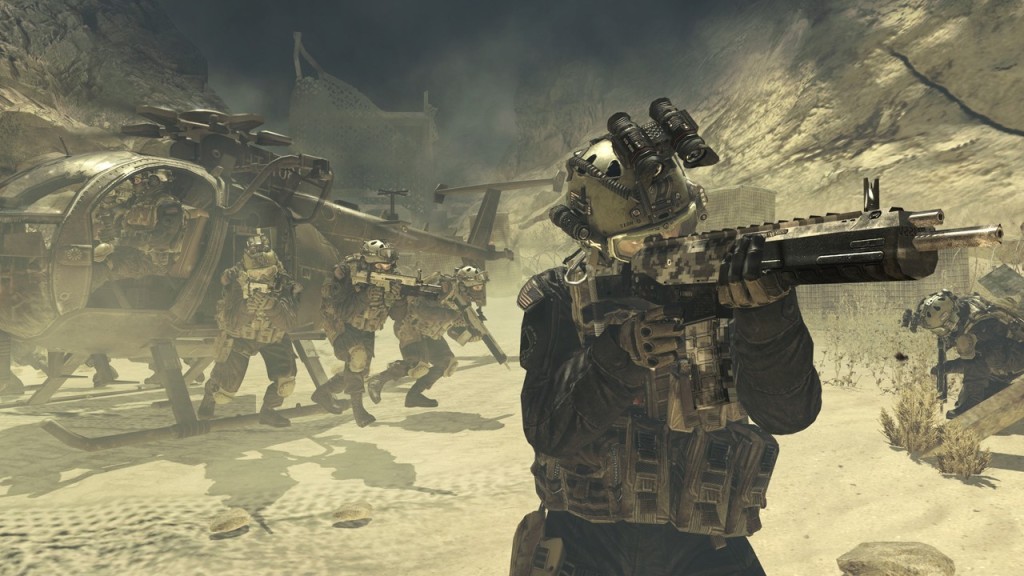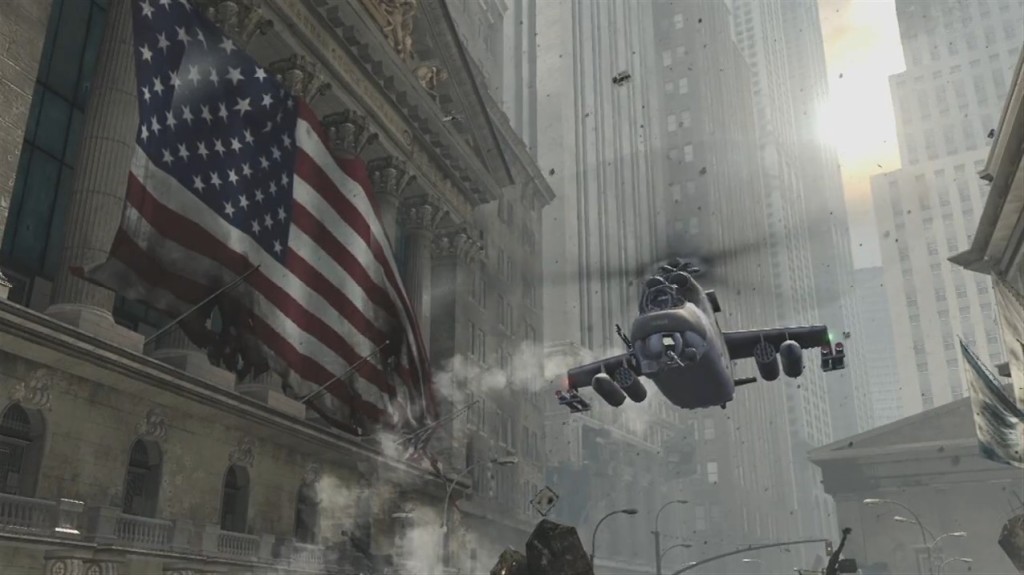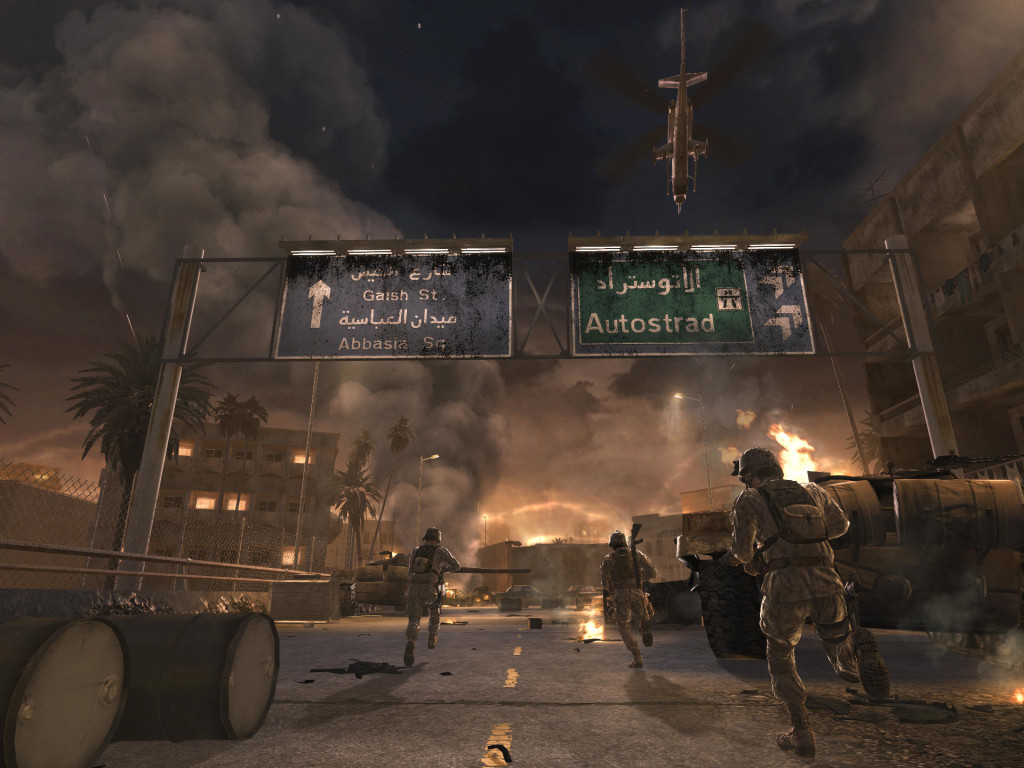Search Results for: F word
Genre: Drama
Premise: An irresponsible man attempts to raise his dead sister’s daughter, a child genius, until his mother comes to town and starts fighting for custody of the child.
About: This just landed on the 2014 Black List with 7 votes. Marc Webb (The Amazing Spider-Man 1&2) is going back to his 500 Days of Summer roots to direct the small character piece.
Writer: Tom Flynn
Details: 121 pages (undated)
I just read a quote by Tim Burton saying that the world will soon tire of comic book movies. I used to agree but I’m not so sure anymore. The only reason comic book movies weren’t around in abundance earlier was because Hollywood didn’t have the special effects to back up the vision the films required.
Now that that’s not a problem, comic book movies are actually perfectly suited for film. They carry with them action, spectacle, wish-fullfillment, and a lot of flashy characters. I don’t see them leaving the local Cineplex anytime soon.
But I’ll tell you one person who wants to leave them behind, and that’s Marc Webb. Webb’s initiation into the world of big-budget comic book movies hasn’t been a good one. The two Spider-Man movies he’s made have been pretty bad – jumbled messes with nary a clear plot. Of course, you could say the same about the earlier incarnations of Spider-Man. But the big difference there was that Sony wasn’t competing with the juggernaut known as Marvel. Say what you will about Marvel but they take their superhero films VERY seriously, and as such, they consistently deliver a quality product. Peter Parker’s one-liners all of a sudden aren’t enough to keep an audience interested.
Webb is clearly tired of this world, so he’s going back to his indie roots. And I must say, I commend him for doing so. Rarely do directors who make it to the big leagues with those big league paychecks go backwards, especially in an industry where movies like Gifted are lucky to get 100 screen releases and featured rollouts on Itunes.
But the very notion that Webb is willing to take that chance tells me this script has something going for it. And truth be told, I love these ‘gifted children’ movies. Call it the Searching for Bobby Fischer Syndrome. Exceptional intelligence at a young age is always a burden, and so there’s conflict built right into the character. Let’s see if Flynn nails this latest attempt at the genre.
30-something Frank Adler is an irresponsible bachelor if there ever was one. Seven years ago, Frank’s sister, Diane, a brilliant but troubled mind, walked in on Frank, dropped off her baby, then killed herself. And just like that, the eternal bachelor found himself father to a child.
And an awful father he was. Not knowing the first thing about parenting, Frank treated Mary more like a roommate than a daughter. Got a boo-boo? Go, like, find a band-aid or something. Luckily, Mary could handle it. Just like her mother, she was extremely smart. But at 7 years old, Frank’s realized that he can no longer keep this girl locked up in his place. He has to send her off to school.
Problem is, Mary’s like 100 times smarter than all the other kids at school, combined. Actually, she’s smarter than all the teachers, combined, including Bonnie, her primary teacher, who takes an interest in Mary’s unique talents, as well as her emotionally damaged but hot father.
Just as it becomes clear that Mary needs to be placed in higher education, Evelyn, her grandmother and Frank’s mother, shows up, demanding custody of the child. On the one hand, Frank doesn’t want Evelyn anywhere near Mary. She ran his sister (Mary’s mom) into the ground, and she’d do the same to Mary.
But there’s a little voice in the back of Frank’s head saying: “Freedom.” Finally, he can go back to living life his way, instead of being responsible for a child he’s no good at taking care of anyway. At least that’s what he tells himself. When the courts get involved and decide that NEITHER brother or mother is capable of taking care of Mary, they bring in a third party, a foster couple. But this couple harbors a secret that will throw everything off its axis, and force Frank to decide what he really wants out of life.
Gifted is a good screenplay, and further proof that if you can identify the key line of conflict within a logline, you probably know how to write a screenplay. You may wonder what I mean by that. Let me explain.
Your first order of business in a logline is to convey the plot, which essentially means the hero’s main goal, or the journey he’s going on. Indiana Jones goes after the Ark of the Covenant. But that’s only half the battle. You then have to identify the key line of conflict that’s going to impede upon that goal. In other words: What the fuck is going to get in the way and hamper Indiana from getting the Ark?
To see this in action, let me give you the NON conflict-laden logline version of Gifted: “An irresponsible man attempts to raise his dead sister’s daughter, a child genius.” There’s some semblance of a plot there. BUT THERE’S NO LINE OF CONFLICT. The idea is open-ended and therefore directionless. There’s no story yet! “…until his mother comes to town and starts fighting for custody of the child,” is the key line of conflict that all of a sudden gives the story a reason to exist. Without that conflict, the story has nowhere to go.
Now as much as I liked Gifted, it had some issues that kept it shy of “impressive” territory. One thing that drives me nuts is when a writer skirts reality in order to move the plot forward, particularly with a major plot point. I’ll have to get into spoilers to explain this.
Late in the story, Frank loses custody of Mary to the foster parents. But come on. There’s no way this would happen in real life. Frank loves Mary. He’s a family member. She loves him. He doesn’t do drugs. He’s not an alcoholic. He provides a roof over her head. He doesn’t neglect her in any way. And the courts give the child to a random foster couple instead?
Come on.
The only reason this development occurs is because the writer wanted to advance the story. But audiences are savvy to this. They may not know the technical reason things feel off. But deep down they feel something isn’t right. And that something is cheating. The writer is pushing along false plot points when, in the real world, we all know this would never happen.
I think it’s one of the most disingenuous things you can do as a writer, is to falsely move your story along. It’s your job to follow an honest path. That’s not to say you can’t have the courts give Mary to a foster family. But you need to build in a legitimate REASON for it. If Frank were an alcoholic (or whatever kind of addict), for example, and was therefore truly unable to care for his daughter, I’d buy into the court giving Mary away.
And lastly, they need to do more with Frank’s character. If you’re going to write a drama, you have to recognize that the ONLY way to market the movie (since you don’t have explosions) is through an A-list actor. And A-list actors don’t sign on to play characters like Frank in his current incarnation. Frank’s a level-headed guy. He doesn’t have any huge issues. He’s a bit of a loser, but otherwise average. If an A-lister is going to be in a small movie and get paid a tiny amount of money, they want to either play a really challenging role, win an Oscar, or both.
My guess is that, as this script works its way through development, Frank will become more fucked up. He’ll become an addict in some capacity. And I don’t think that’s a bad approach. It actually makes sense because now, like I mentioned, there will be a reason for the courts to separate him from Mary.
And all this isn’t to say I didn’t like the script. I thought it was good. But these are the realities of the ways these movies are made nowadays. Big actor or go home. Making the main male character interesting/unique is the difference between getting Matt Damon or Josh Brolin. I hope they figure it out because this can not survive with Josh Brolin.
[ ] what the hell did I just read?
[ ] wasn’t for me
[x] worth the read
[ ] impressive
[ ] genius
What I learned: From now on, I want you to always include the key line of conflict in your logline. I can dismiss half the screenplay queries I get due to the lack of a key line of conflict in the logline. And if you can’t come up with a key line of conflict for your logline, chances are, you don’t have one for your script, which means you’ll have to rethink the story and add a key line of conflict.
Get Your Script Reviewed On Scriptshadow!: To submit your script for an Amateur Review, send in a PDF of your script, along with the title, genre, logline, and finally, something interesting about yourself and/or your script that you’d like us to post along with the script if reviewed. Use my submission address please: Carsonreeves3@gmail.com. Remember that your script will be posted. If you’re nervous about the effects of a bad review, feel free to use an alias name and/or title. It’s a good idea to resubmit every couple of weeks so your submission stays near the top.
Genre: Comedy
Premise (from writer): A closeted superhero wrestles with both of his secret identities, as the world embraces his superhero alter ego but his friends and family can’t accept the man behind the mask.
Why You Should Read (from writer): I saw that The Almighty Stud got really negative reviews based on the fact that it conveys a misogynistic message and displays a gay character that perpetuates the flawed association between homosexual men and predatory inclinations. So, why not offer a superhero screenplay that does the opposite of all that? My protagonist is a gay superhero that challenges the stereotypes, it has a cool feminist superheroine and the villain, although in a first moment seems to be just like The Almighty Stud villain, actually hides a secret that mocks through subtext the current trend among certain men of demonizing feminism and feminists.
Writer: Illimani Ferreira
Details: 103 pages
The competition for this weekend of Amateur Offerings was CLOSE. I don’t know if it’s because all the scripts were too weak or all of them were too strong, but going through the comments gave me a headache as the second I’d think I’d found a winner, the next three votes would be for something else.
The leaders seemed to be Midas and Super Epic, with Intelligent Design clipping at their heels. I had to make a decision though and when it’s decision time, I typically go with the premise that has the most potential. I do this because it’s what a producer would do as well. Unfortunately, I could make the case for all three of these premises turning into money-makers. But the one with the most innovative premise was clearly “Super Epic.” So that’s the one I went with.
Moving forward, when you vote for Amateur Offerings, please state your winner up front and clearly. I don’t always have time to read through every comment, so if your answer is to be discerned through your general reaction, I may not catch it. And with that, let’s grab our capes and swoop in on Super Epic!
Eric has a secret. He’s a superhero with super-human strength. He spends his afternoons hanging out with his dude friends, the psychotic Corey, the short in stature Butch, and the overweight Stockwell. And then at night, he battles the city’s evil villainess, Feminazi, who doesn’t so much push a feminist agenda as use it as an excuse to wreak havoc.
Eric occasionally teams up with a superhero named Butterfly, a skinny cat-lady who can fly and has a crush on Eric. Butterfly has good intentions, but always seems to take too long coming up with a solution to Femanazi’s evil plots, forcing Eric to save the day.
Unfortunately, Eric has another secret. He’s gay. And he’s so damn tired of being in the closet that he’s decided to tell his parents the truth when they bring their daughter to town for a beauty pageant.
And that’s pretty much the whole movie. Feminazi keeps threatening the peace and Eric keeps having to stop her. I guess there’s also a thread where Eric and Butch stop being friends when Butch finds out that Eric is Super Epic. But yeah, there isn’t really a plot here. Just a series of things happening.
Okay… this was not what I expected.
I really loved this idea but the execution… how do I put this… wasn’t very elegant.
There were a lot of first-timer mistakes that prevented “Super Epic” from becoming the awesome movie I think it could be. So let’s dive right into them.
First, the screenplay should only be focused on two threads, just like the logline lays out – Eric should either be dealing with protecting his superhero identity, or he should be dealing with protecting his sexual preference. That’s what we came to see. So if there are large chunks of the story that aren’t dealing with one of these two issues – which there are – then the story will feel unfocused – which it does.
I think we go 24 pages in the script before we reveal that Eric’s gay. There are just too many wasted scenes that aren’t dealing with the script’s key issues.
It would be like if you read the logline for The Hangover – Three groomsmen try to find the groom the day after his drunken bachelor party when none of them remember anything – and then you had scenes where the characters went and took golf lessons. We’d be going, “What does this have to do with the premise?” That’s how I felt a lot during Super Epic.
On top of that, there were no STAKES attached to either of these secrets. The power in a character hiding something comes from our fear of what will happen if the secret is discovered. I didn’t get the feeling that much would change in Eric’s life if he revealed he was Super Epic, or gay, and since keeping these secrets was the point of the entire movie, I’m not sure how it can work without those things in place.
Take Eric’s family for example. These are the people we’re supposed to be afraid of Eric coming out to. But they’re a cartoon. They’re the Honey Boo Boo family. They hold no real weight as characters because they’re caricatures. Who cares if a caricature doesn’t accept your sexuality? If you want the closeted angle to work, you have to make the family real people. They can still be funny, but they have to be grounded. And we have to fear their reaction if Eric were to tell them the truth, which we don’t.
On top of this, there’s no real structure to the story. There’s no clean plot. Nobody’s trying to take over the city or has some big master plan. Feminazi just keeps occasionally wreaking havoc, and since there’s no escalation or focus to these attacks, we don’t feel like we’re gearing up towards anything. These characters need more of a plan and this plot needs more focus.
Then there are some obvious oversights. I mean, this is a movie about a guy trying to hide his homosexuality, but there’s no love interest! There’s no guy he likes or is going out with. How can we adequately explore a gay man’s hidden life if we don’t explore his relationship with men?
Let me give you an idea of how to solve some of these problems. I’m not saying this is the only way to fix this screenplay, but it should give you an idea of which direction to turn the boat.
First, create some real stakes in Eric needing to hide his sexuality from his family. Make them real people, not a silly joke. Make them conservatives, probably religious, and unaccepting of homosexuality.
Next, I don’t think you get the most drama if Eric plans to tell his family that he’s gay. I think it works better if he’s planning NOT to tell them. He wants to hide it because he knows his family couldn’t handle it.
Next, have it so the family’s coming in for the weekend for some event, and they’re staying with Eric. This is important. We need them AROUND HIM so it’s hard for him to HIDE his secrets. The time limitation also gives your plot focus (you’re only covering three days, which gives us a clear ticking time bomb for the end of the story).
And make the family REAL. What’s the point of exploring the difficulty of hiding your sexuality from an unaccepting family if you don’t take it seriously? If it’s one big joke, then we won’t care if they find out or not. That’s not to say you can’t make jokes AROUND this issue, but the issue itself must be dealt with honestly so that we FEEL the weight of it.
Then, give Eric a boyfriend, someone who he kicks out for the three days while his family is there. Maybe this is someone he’s seeing secretly so even his friends don’t know. I’m not sure how you’d deal with that. My gut tells me there are too many friends anyway. Maybe drop the other two and just keep Butch.
Finally, make this the weekend that Feminazi (although I personally think you could come up with a better villain) drops her ultra plan to destroy the city.
Now you’ve got a scenario that really takes advantage of your premise. For three days, Eric must entertain his family, all the while keeping from them that he’s gay and a superhero, all while trying to maintain his relationship and battle the world’s biggest super-villain on the weekend she decides to take down the city. You see how much more focused that is?
Even then, there are still some things to shore up. For example, how did Eric get his super powers? We just see him as a kid pretending to be a superhero and then cut to him as an adult where he is a superhero. What happened to give him his super strength?
You may think that because this is a comedy, you can skimp on these things. You can’t. The details are what make the audience suspend their disbelief. If you graze over things and just figure the audience will “get it,” you’ll watch helplessly as they turn on you. A lot more thought needed to go into this world and how these people have powers. It didn’t seem well thought out at all. And when you combined that with a slip-and-slide narrative, it’s no surprise the script felt messy.
Illimani is really nice and really eager to get better at screenwriting. So while these words may seem harsh, they’re written with love and the hope that he uses them to improve. I hope your comments will do the same for him.
Script link: Super Epic
[ ] what the hell did I just read?
[x] wasn’t for me
[ ] worth the read
[ ] impressive
[ ] genius
What I learned: One thing a reader will dismiss your script immediately for is if you haven’t thought through one of the key variables of your story. They know if you’re not going to do the work required to get the important stuff right, then you’re definitely not going to work hard on the rest of the script. There was so little thought put into how Eric became a superhero that I immediately knew the script was in for a rough run.
What I learned 2: Comedies tend to work best under tight time frames. A big reason why this script didn’t work was that it wandered. If you put in a tight time frame, you immediately focus the story.
Today we have a very special interview! On Monday, I was talking about the proliferation of video games and how they’re stealing more and more butts in seats from the box office, particularly the under 25 crowd. But fear not. Someone has to write these video games. And that means there are more jobs open for writers. In order to prepare you for that potential job, I brought in the head writer of one of (if not THE) biggest video game around, Call of Duty: Advanced Warfare. John MacInnes broke onto the scene by winning a Nicholl Fellowship in 2012. I actually reviewed his winning script on the site, which you can check out here. Let’s find out how that led to this job, and then ask John what it takes to write a video game.
SS: First thing’s first. You won a Nicholl Fellowship in 2012 for your script “Outside The Wire.” Can you tell us what your writing career was like up to that point?
JM: I always wanted to make movies. My first job was as a film projectionist in my local flee pit in rural England. I studied film making at university (in the same year as Steve McQueen, 12 Years A Slave, etc). Initially I was more interested in directing and spent a lot of time making short films and trying to get a feature off the ground but I eventually ended up in LA completing a Masters Degree in screenwriting at UCLA.
So I’d written a number of scripts before winning the Nicholl – maybe about eight? – I had some interest in my work but it wasn’t until I won the Nicholl that things started to take off. Writing a decent script is one thing, getting that script read and getting interest in that script is a whole other battle. I entered the Nicholl on a whim just hours before the deadline and didn’t think too much about it until I got the call telling me I was a finalist. So, you just never know what’s going to stick. The only thing I have some kind of control over are the words on the screen in front of me, so I focus on that and hopefully the rest will take care of itself.
SS: You say you never know what’s going to stick, but can you identify anything in “Outside the Wire” that made it stand out from your other scripts?
JM: It’s hard to say. The script I wrote before Outside The Wire was a family comedy which was only optioned after winning the Nicholl. Certainly, Outside The Wire is a more immediately compelling script but then again it is a high stakes action thriller. I think Outside The Wire does create a specific world that feels authentic. When I show up to meetings people are sometimes surprised that I’ve never served in the army or gone to Iraq. I like detail. I like specificity and I love to be immersed in a world. Those are all qualities that work well in video games.
Glen Schofield, the creative mind behind Advanced Warfare, is a very detail oriented guy and if you think about it you have to be. Every single element in a video is designed and created – in 3D! You can walk around in a game and just look at stuff, and if you do it’s going to look and feel like an authentic functioning thing. Having said all of that, a world you create is totally meaningless unless you have compelling characters who inhabit that world. I just finished a movie adaption of Rudyard Kipling’s Kim, an action adventure set in India at the end of the 19th century. It’s a fascinating world but what makes it compelling is Kim, the 16 year old boy at the heart of the story
SS: So I’m assuming Outside the Wire is how you got your agent.
JM: Yeah. When you win the Nicholl you get to have that day all writers dream of when everybody in town wants to read your script. It’s all a little overwhelming. I wasn’t repped at the time but a friend was managed by Brillstein so I met with Margaret Riley and Naren Desai at Brillstein and pretty much agreed to go with them on the spot. I didn’t have anyone to compare them to but we hit it off and I haven’t looked back. Margaret then introduced me to my agent, Lars Theriot, at ICM. I’ve heard tales of writers cycling through managers and agents to find the right one but I’ve been very happy with Margaret and Lars, they’ve set me up with great meetings and most importantly they’ve kept me employed.
SS: You’re right. Most writers cycle through a lot of managers and agents before they find the ones who are right for them. For future writers lucky enough to be in that position of choosing a manager/agent, what advice can you give them on picking the right one?
JM: There’s a practical matter of can your team get your work read by the people that are going to employ you. If you just look at their other clients it’ll give you an idea. I think it also depends on what sort of relationship works for you. Some managers are more like producers and are very involved in your creative process, others are more about guiding your career and connecting the dots. I like people who see the big picture and who are invested in your career for the long term. It’s also not just about what you see in them. It’s a two-way street. I’m on the lower rungs of success. If they’re going to go into bat for me, I have to make sure I’m going to make a good impression on whoever I’m meeting.
SS: Okay, so let’s get to it. How does a writer get a job writing for a video game? Where do you go?
JM: Call Of Duty came through my manager. Suzanne Todd is a consulting producer to Activision. She read Outside The Wire and thought I’d be perfect for the new title. My script is an action thriller about a private military company working in Iraq so if you’ve played the campaign in Advanced Warfare you’ll know it covers similar themes and issues. Bizarrely – because I don’t think of myself as a military nut – I’ve acquired a lot of knowledge about special forces. One of my first jobs out of college was as a researcher/story consultant for the BBC who were developing a drama series about the SAS (for Paul Greengrass when he just ‘just’ a tv director). It was my job to read every ‘kill and tell’ book ever written about the SAS and go and meet with a bunch of those guys.
So Activision loved my script and I had a pretty good knowledge of subject, but I wasn’t much of a gamer at the time. I’d played CoD a few times but it turned out they wanted someone specifically from the movie world to bring greater depth to their characters and give their campaign a more cinematic feel, rather than someone who was going to improve their game play – those guys have that covered! I’m sure they interviewed a lot of other writers – but you never know what you never know – I had, I think, three meetings so I knew I was getting close, and then I got the call saying I had the job.
SS: That’s awesome. So how much emphasis is put on the writing in one of these big games compared to areas like gameplay, graphics, etc.?
JM: It’s hard to answer that because the games industry is evolving all the time and every game is different. Yes, first and foremost, it’s a game, so traditionally writing has been more of an afterthought, but the guys at Sledgehammer were really keen to break new ground. Advanced Warfare is the first next gen CoD title, which means the level of resolution is approaching that of a movie (if you can even compare a 2D passive experience with a 3D immersive experience). With that level of photorealism comes the opportunity to create emotionally engaging character performances on par with anything you’d see in a movie or on tv. So they had to take all the performance aspects up a notch and that’s why I think one of their smartest decisions was hiring Kevin Spacey to play our bad guy.
The Last Of Us came out last year and was a critical and commercial success. It represents a paradigm shift in the way the games industry thinks about narrative and story and really showed that a video game can have a story as complex and developed as a movie and I think that trend is just going to continue. CoD is mostly known for it’s multiplayer but it’s the campaign (the story) that give the game its identity and it gives you the world. I think Eric Hirschberg (Activision CEO) made a smart move to sell Advanced Warfare with Kevin Spacey’s character, Jonathan Irons the CEO of the Atlas Corporation. You can’t really sell the game play in a commercial but you can sell an idea, a theme, through a character. It’s funny because I was so busy when Advanced Warfare came out that I actually forgot until someone sent me a link to Kevin Spacey on Jimmy Fallon talking about the game and showing a scene. Has that ever happened before? A Hollywood actor promoting a video game? Got to say it was pretty cool.
SS: That’s spec-tacular. Can you detail the writing process? When do you come in and what is it your job to do?
JM: Let me just say that the way games and movies are made is very different. I was brought on at the early stages to work on the story but the game was already being built, so I think there are aspects of game production that are more like a large animated movie – it takes so much time and work to build the thing that you have to start building right away. It’s a little like building the sets before you’ve written the scene, but that’s just the nature of the beast. Over the three years it takes to make every element, either game play or story is subject to change. These changes could be because of all sorts of reason that have nothing to do with the story, so the sands are constantly shifting.
It’s also a very collaborative process. As well as the creative heads, there are the level designers who have a big input, so it’s important for me as the lead writer to understand their creative process and work together as a team. But I’ve never seen game play and narrative as mutually exclusive and I think we all learned a lot from each other.
Another difference between writing a movie and writing a big AAA game is the absence of a complete script. The campaign is made up of 15-20 levels. Each of these levels has a cut-scene or load movie. Traditionally, the cut scenes were full of exposition – basically cramming the story in there – but on Advance Warfare we really wanted to integrate the storytelling into the game as a whole and the cut scenes play like a scene in a movie rather than endless graphic information. So, there was time spent on developing the characters and story as we go. Each of the levels is like a set piece in itself but must function for the narrative as a whole (even though they might get written out of sequence). It’s a very interesting creative process, quite different from a movie.
SS: Okay so, just to get into a little more detail – What is the terminology for every component you’re responsible for writing? For example, do you break it down into a) overall narrative, b) episode c) level d) cut scene, e) in-scene. It there a hierarchy like that?
JM: All of the above. But each game has its own requirements. There’s not a set way of doing anything and the terminology for everything is still up in the air. Every game developer has found their own groove for what works for them. So what I’m really doing is bringing my story skills to each and everyone of these situations. It’s challenging and rewarding. Screenwriters and developers speak a different language. Level designers come at the problem from a different angle than screenwriters. The skill is understanding how each elements works in relation to the whole. Understanding the form is absolutely crucial and, as I said, each game is different and presents unique creative problems. I love it when I can solve a gaming problem with a story/narrative solution. That’s what makes it interesting.
SS: With screenplays, obviously, you have a very structured narrative (first act, second act, third act). Is it similar with a video game? A game lasts so much longer so I’m assuming a traditional structure doesn’t enter into the equation. Are you essentially inventing a new narrative approach when writing a video game?
JM: The three act structure is very much part of the equation for the campaign, but it’s more akin to a mini series in its size and scope. There’s about 10 hours worth of story in there! But a lot of it – obviously – is game play. In any level you can only really hit a couple of narrative points without losing the player.
SS: What about character in video games? Is there a difference in approach when writing characters? Or is it similar to writing features?
JM: I approach it in the same way I do a movie. Game developers and screenwriters tend to approach character from opposite ends. I always start from inside – motivations, flaws etc – and the way a character looks and moves emanates from that. Gamers tend to see character only from the outside. But that’s exactly what screenwriters can bring to the game.
SS: What’s the biggest difference between writing a script and writing a video game?
JM: Point of view. It’s interesting because this is an evolving on-going discussion. CoD is a first person shooter so pretty much everything you see and experience is through a character who is also the player… but you never speak. We got around this in a number of interesting ways. One, we employed a VO from the protagonist in some of the cut scenes (you also get to see the protagonist in the cut scenes). Two, your supporting characters, foils and antagonists become really important as proxies for your protagonist.
It’s an interesting philosophical debate that cuts right to the heart of narrative and how we create meaning through human interaction and it’s being played out in every new innovative game that comes out. I’m currently writing a really cool game that is all about the writing with branching story lines and is from a third-person POV. I’m also working on a virtual reality project that just blows my mind. I can’t talk about either of those projects because they haven’t been announced but I could wax on for days about these things.
SS: Is it more work writing a video game as opposed to a script or less?
JM: It depends on the game. The game I’m writing is like writing a six hour mini series for tv.
SS: Finally, the question I’m sure every writer is interested in. How is the payment in video games compared to the payment in writing traditional screenplays? Comparable? Less? More?
JM: It’s a good question. The games business does not have the precedents that have been established in the movie business over a hundred years or so. Traditionally, the writer in video games is less valued than in the movie business but I think that could change as the value of the writing becomes established. I came to games from the movie business so I get paid movie rates and thankfully I have a great team to fight for that!
It’s also hard to work out a deal because the amount of labor involved varies so much. I’ve been paid for the amount of hours and for the amount of pages, it just depends (must drive my lawyer crazy!). But rates are declining across the board. If it’s just about the money, don’t become a screenwriter. It’s too crazy. I’m just happy to be doing what I love. I’ve done my fair share of crappy jobs in my life and this ain’t one of them. I’m grateful for any opportunity to break new ground and create really cool stuff. It feels to me like video games are where movies were at with the advent of sound. In 1927 the Jazz Singer changed the business over night simply by talking. A little over a decade later you have Citizen Kane. These are exciting times. Who knows what games business will look like in ten years time, but I know I want to be part of it.
I know John’s busy but I think he’s going to try to answer some questions in the comments. I can’t promise anything, but if you’re wondering something, ask away.
Genre: Period/Biopic
Premise: The story of how a simple girl became one of the greatest leaders in the history of the world.
About: There were a couple of weeks a few months back where Catherine The Great was the big script on Hollywood Campus. Writer Kristina Lauren Anderson was feeling that love all screenwriters dream of, as everyone in town swooned over her script and wanted desperately to know what she was doing next (so they could be a part of it!). Period biopics aren’t my thing so I never got around to reading “Catherine,” but now that it’s placed on the top of The Hit List, the best-of-year screenplay list for spec screenplays, you can say I’ve officially taken notice. While this may be Anderson’s breakthrough on the screenwriting front, she did produce an independent movie called “Girlfriend” a few years ago that did well on the festival circuit. So she’s far from a stranger to the industry.
Writer: Kristina Lauren Anderson
Details: 128 pages (Draft 5.1)
 Scriptshadow Suggestion: Emma Watson for Catherine the Great?
Scriptshadow Suggestion: Emma Watson for Catherine the Great?
As I put feelers out for this script a couple of months back, I wasn’t getting the best responses. “Boring period piece” is what I heard. “It’s okay I guess, but nothing special.” Not exactly the kind of endorsement that makes you rush to double-click a PDF.
Indeed, whenever I’m tasked with reading a period piece, I find myself doing all sorts of things I supposedly “never have time to do.” Clean the apartment? Yeah, I should do that. Laundry? I guess I haven’t cleaned my towels in awhile. Alphabetize my dust-covered DVD collection? I mean, you never know when you might need to watch a DVD despite not owning a DVD player anymore.
Heck, I’ll do just about anything to avoid that dreaded page 1 of a period piece.
But none of that was necessary today. That’s because today, I learned that Catherine the Great was a fucking badass.
We meet Sophia Augustus at 17 years old, masturbating, an exercise she’ll also use a horse to achieve later in the story. Not really sure what masturbating had to do with this movie, but I think it’s to clue us in that Sophia isn’t a slave to the expectations of women at the time.
Not a beautiful girl, but extremely smart, Sophia’s mother had her do everything under the sun as a child (ballet, music, horse-riding) to prepare her for landing an important man, about the only way a woman could move up in society at the time.
Never in her or her mother’s wildest dreams, though, did they expect to be chosen by Elizabeth, the current ruler of Russia, to wed her nephew, Peter. Sophia (whose name would later be changed to “Catherine”) was about to become a princess.
But what’s that thing they say about “if it’s too good to be true?” Something about “it probably is?” Yeah. That happens here. Turns out Peter is a sickly puny ugly simpleton of a man, the 18th century equivalent of an autistic nerd. The whiny 17 year-old would rather play for hours with his toy soldiers than be lured in by the touch of a woman.
And so begins years of torture, as Catherine realizes that there is no way to please this man, to get her to like him, a task complicated by the fact that she’s expected to give the country an heir. But how can you give your country a child when your husband is more interested in his male barbies than the female anatomy?
As Catherine grows up, she begins to realize that maybe pleasing her husband in order to be the Queen of Russia isn’t the play here. Maybe the play is to rule Russia on her own. And thus begins a complicated game of the throne (so to speak) where she waits for Elizabeth to die, all the while plotting the downfall of her husband. If the cockamamie plan works out, she’ll become one of the most powerful people in the world.
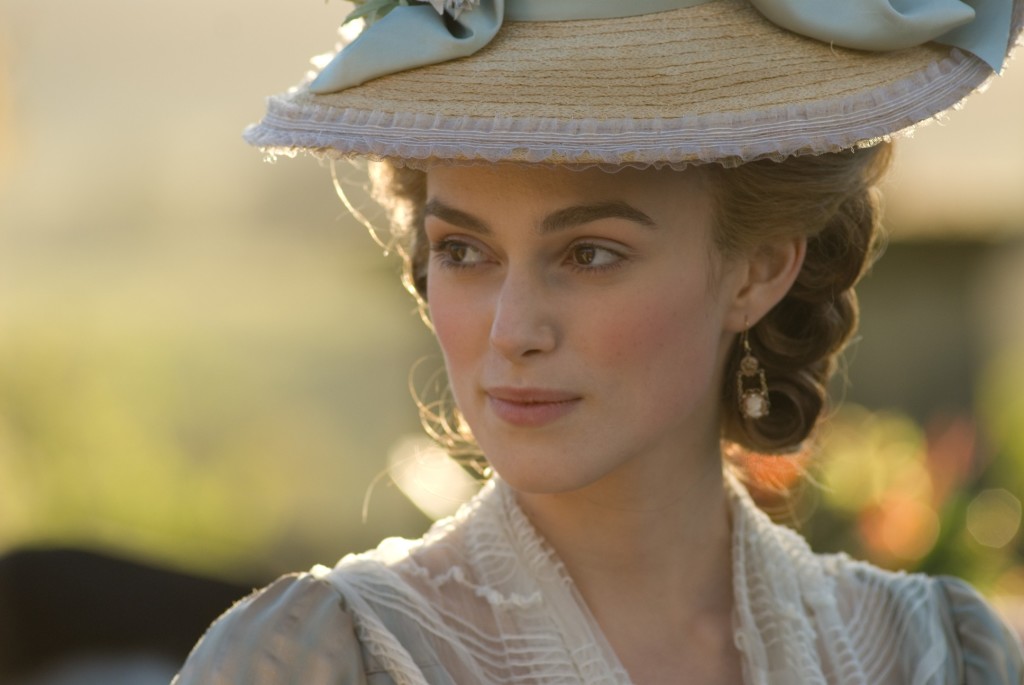 Keira Knightly to play someone since it’s a period piece?
Keira Knightly to play someone since it’s a period piece?
Wow, this script was unexpectedly top-notch!
Biopics are tricky. You can try to create three acts out of them, but it never quite works. Biopics do not have a universal template. Some start at the beginning of the subject’s life and take you to their death. Some only cover a few important years. For this reason, if you try and squeeze these scripts into a Blake Snyder beat sheet, you’ll find nothing but frustration.
So if there’s no template for biopic structure, how does one write them? Well, I can give you some basics. Just like any great story, try to come in as late as you can. So here in “Catherine the Great,” we don’t start when Catherine is born. We start when she’s 17 and looking to land a husband. That’s a good place to start since the movie centers around her marriage to Peter.
Also, remember that unlike a normal screenplay, with a biopic, the star is on the title page. This isn’t called “War in Russia.” It’s called “Catherine the Great.” That means a CHARACTER is the subject. Which means ALL YOUR FOCUS in a biopic should be on character. Creating fascinating characters. Creating troubled characters. Creating characters with flaws. Creating characters with contradictions. Creating characters who are unique. With a biopic, you have to kick ass on the character front because you’ve made a character the center of your story.
From there, you naturally extend your great characters into great relationships. The biggest reason this script is so good is because of the conflict-fueled dynamic between Catherine and Peter. At first the conflict is Catherine trying to please the aloof Peter. Then it’s her frustration with him. Then it’s her anger at him. Then it’s him leaving her for another woman. Then it’s about her getting rid of him. This is great writing. Not just constant conflict, but constant EVOLVING conflict in the story’s key relationship.
Finally, with most biopics, you want the life you’re following to BUILD. If a character is meandering, we get bored. But if every few scenes, we feel like our character has taken another stop up the staircase towards an important destination, we not only get the sense that progress is being made, but we invite the possibility that our character can fall, which add those all important stakes.
And keep in mind that you want multiple staircases to add variety to the story. As soon as your character gets to the top of one staircase, introduce another.
So here, the build starts with Catherine trying to impress Peter in order to marry her. Then we’re building towards her needing to deliver an heir. Then we’re building towards Catherine trying to take out her nemesis, a woman who steals Peter. And finally, we’re building towards Catherine taking over the crown.
If we don’t feel like our character is building up towards something, then the story remains level. It’s just a series of flat scenes, one after another, that ultimately feel directionless, because, once again, you don’t have a traditional plot to hang your story on. This is a person’s life. Not three acts of a character journey.
All this is easier said than done. You still have to come up with these interesting characters. You can’t just decide to write an interesting character and your day is over. You have to find them within yourself, in your everyday life, or do what Anderson did here – find them in history.
Where Catherine the Great really shines is that it has two great characters anchoring the story. And I want to make something clear. If either of these characters weren’t great (no pun intended) you’d have no screenplay. EVERYTHING would fall apart. Because, again, you don’t have a traditional plot supporting your story. You just have your characters and that means the characters anchoring the story have to be amazing.
And what’s so cool is that Catherine and Peter are fascinating in different ways. Catherine is smarter than everyone else, an adulteress, a heartbreaker, a schemer, and someone who struggles with what she ultimately wants. Does she want to rule Russia or doesn’t she? She’s also a classic underdog (readers always love underdogs!). She’s a nobody when she comes to this kingdom. She has no allies. No friends. And she’s a woman at a time when woman were looked at as property. So we want her to succeed and rise up against these misfortunes.
But it’s Peter who truly stands out as one of the weirdest characters you’ll ever read. He’s a grown man who likes toys. He’s sickly and horrifying to look at. He’s socially ignorant. He doesn’t have any interest in females unless they enjoy his trivial boyish hobbies. He loves the army but is a coward. He throws rocks at his own people. He gets excited by the tiniest of things, like winning meaningless card games. He’s just a grade-A weirdo. And part of the attraction of this script is watching Catherine have to deal with this nut.
This one I wasn’t expecting. It’s got that big 128 page price tag on it, but it doesn’t read like a bulky period piece. The writing is so sparse and pleasant that your eyes glide right over the words. Catherine The Great is the real deal. And I encourage all of you to read it, even if it’s just to see how someone writes a screenplay that doesn’t follow the traditional 3-act structure and accepted beat sheet of a Hollywood script.
[ ] what the hell did I just read?
[ ] wasn’t for me
[ ] worth the read
[x] impressive
[ ] genius
What I learned: For biopics – Create characters that are even more fascinating than characters in “regular” scripts, create captivating conflict inside the key relationships, and create a constant sense that our character is building towards something.
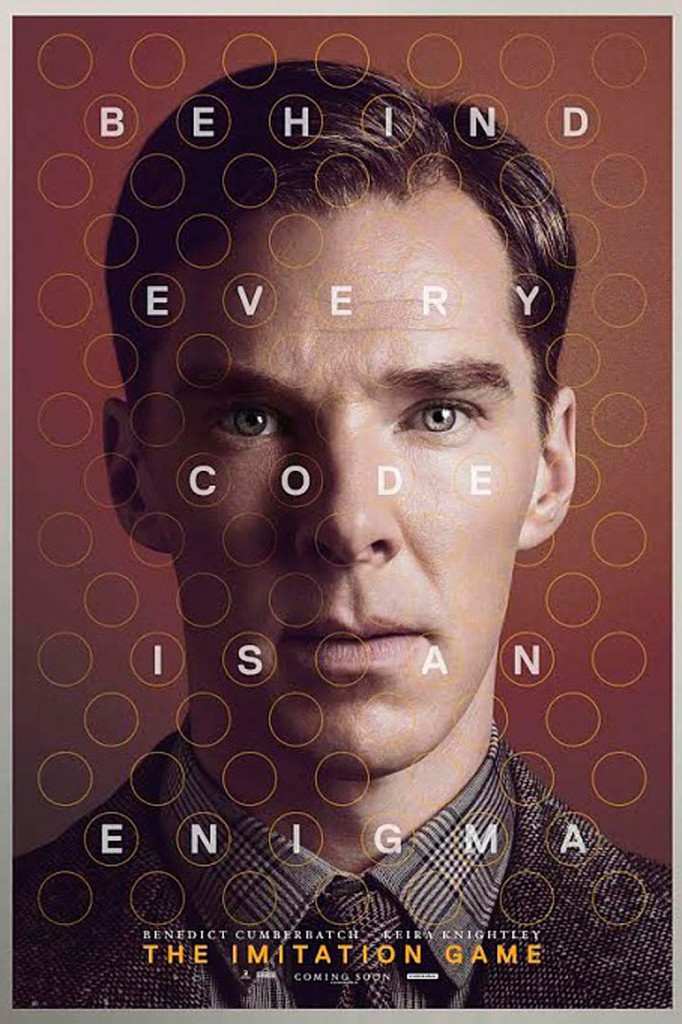 Is The Imitation Game a movie? The answer might surprise you.
Is The Imitation Game a movie? The answer might surprise you.
There I was, skimming through the comments last week, when I spotted one that caught my cornea. The comment was from a writer who had asked his director friend what he thought of the Black List. There were some good scripts on there, the director friend conceded, but not a lot of MOVIES.
Not a lot of “movies?” What was that supposed to mean? Aren’t all scripts written to be movies? What was this strange director friend of a friend of a commenter talking about?
What he was talking about is that not every good script makes a good movie. That’s because good movies aren’t only about stories. Movies are about imagery and ideas and action and adventure and sound. There was a time long ago when people went to the movies because they could take them places they’d never be able to visit otherwise.
It’s a lot easier to see the world these days with the internet and a thousand outbound flights to Europe every day. But the spirit of this statement is still true. A movie has to give people something they can’t have in real life, something outside of the norm.
Look at the Star Wars trailer, which, no, I have not watched 117 and a third times since Friday. Who gave you that information? There’s a sense of “action” in each of the shots presented. The characters need to get somewhere. We’re on other planets seeing things we’ve never seen before. We can’t get this kind of action or these kinds of worlds anywhere else but in the movie theater.
On the flip side, you have films like Garden State and The Skeleton Twins. These aren’t movies. They’re glorified 90 minute TV shows – talking heads going through issues. With the line between TV and film blurring more every day, it’s become even harder to justify these “movies.” They’re not giving us anything we can’t see on our television sets.
I’ll never forget what an agent told me when I first got here, which is that people are going to pay MILLIONS OF DOLLARS to produce your screenplay. So what are you going to show the world that’s worthy of those millions? If it’s just two people chatting about how life is difficult, your financers are going to wonder why you need 2 million bucks. Why not just shoot it on a Best Buy camera for nothing?
Let’s get more specific. What is it that makes a script a “movie script” and not simply a “good screenplay?” Here are seven things that will help you determine just that. Your script doesn’t have to hit all of these points. But it should hit most of them.
1) A large scope – Movies are supposed to feel larger than life. So the scope should feel bigger than normal.
2) The script falls within one of these movie-friendly genres: horror, sci-fi, action, adventure, thriller, period.
3) The script doesn’t fall within one of these non-movie-friendly genres: Straight drama, coming-of-age, political, romance (unless you’re Nicholas Sparks), and satire.
4) Your script is something we can’t get anywhere else but in the movies (dinosaur parks, for example).
5) Can you easily imagine the trailer?
6) Is the script something a director would be eager to direct? (I bet there wasn’t a line of directors out the door wanting to helm “Obvious Child.”)
7) There’s a lot more action (and by action I mean characters doing things, not just stunt action) than there is talking.
With this newfound knowledge, let’s look at five Black List loglines and determine if they’re “movie” ideas or just well-written screenplays. I want to make something clear. I am in no way passing judgment on the scripts themselves. In fact, I haven’t even read any of them. We’re just trying to determine the script’s viability as a movie.
Hot Summer Nights
Logline: A teenager’s life spirals out of control when he befriends the town’s rebel, falls in love, and gets entangled in selling drugs over one summer in Cape Cod.
It sounds like the main character is quite active in this, which is good. The drug trouble stuff implies some moving around (movement is good – it’s not called a “move” “ie” for nothing). But the scope here feels too small. I don’t see any directors getting excited over this. They made the similar “Toy’s House,” last year, a script that I liked. And the film was pretty good too. But nobody saw it because it was, you guessed it, not really a movie. If you turned this into a straight comedy, a la Superbad, that’s a different story. Mainstream comedies are always movies. But this doesn’t sound like that.
I’m Proud of You
Logline: A journalist looking for a story about television’s role in the Columbine tragedy interviews TV’s Mr Rogers and, as a friendship develops between the two, he finds himself confronting his own issues at home.
I mean put yourself in a director’s shoes. Is there anything at all in this logline that would make you want to direct this film? Any powerful imagery? Any action? Anything unique to do on the filmmaking end? My guess is no. This sounds like a very slow-moving sad character piece, which are anti-movies.
The Line
A corrupt border crossing agent must decide what is more important — saving his soul or inflating his bank account — when he discovers a young illegal boy who escaped a cartel hit on the border between the U.S. and Mexico.
I’m seeing the word “slow” in my head every time I read this logline. “Slow” and “movie” don’t go together. Movies must have a sense of urgency, of people needing to do things. Here, it sounds like a lot of sitting around, a lot of characters discussing their pasts, their feelings, their shitty situations. Since “slow” is usually synonymous with “boring,” this doesn’t feel like a movie to me.
Elsewhere
Logline: After his girlfriend dies in a car accident, a man finds his true soul mate, only to wake from a coma to learn his perfect life was just a dream — one he is determined to make real.
My first thoughts are that this isn’t a movie. Seems more like indie actor bait. With that said, the premise is cleverer than the others, and it leaves the viewer with a compelling question (Does he find his soul mate?) that may entice them to see the film. But getting people to the theater doesn’t necessarily mean you’ve created a movie. If the shots are still static. If the style is still basic. If there’s not a lot of movement or urgency, then fancy premise or not, you still don’t have a movie.
Diablo Run
Logline: While on a road trip to Mexico, two best friends are forced to enter a thousand-mile death race with no rules.
Boom! Finally, we have a movie! Look at the elements involved. A dangerous country. Good! “Forced.” That means characters must do things against their will (conflict!). “Race.” That means cars and lots of action. “Death.” That means the stakes will be high, with competitors wanting to kill one another. Go ahead, imagine the trailer. It’s way clearer than any of the above ideas, right? That’s a good sign that you’ve written a movie.
 The Force Awakens: Definitely a movie!
The Force Awakens: Definitely a movie!
Now this isn’t always a clear cut thing. Some scripts are stuck between these two extremes. We don’t know if they’re movies until we see them on the big screen. After the studios grab all the best material (the material that results in the best movies), this “unclear” material is out there for the pickins and second-tier producers have to gamble on each horse, hoping they’re a movie.
The Imitation Game script is a perfect example. It was about World War 2, but the majority of the scenes took place in small rooms with characters talking to each other (dreaded “talking heads”). Again, people talking in rooms is about as exciting as watching fish bake. Any schmoe can buy a camera and record people in rooms. There’s no action. There’s no vision. It’s static. Audiences don’t like to pay for these films because they don’t see anything movie-like about them.
Now I still haven’t seen The Imitation Game, but I’m guessing one of the first things they did when they rewrote it was to look for ways to make it more of a MOVIE. Can we show some of these WW2 ships attacking each other instead of hearing our characters talk about them? Can we put our characters ON these ships? Can we put them closer to the war so we can see more of the war? Can we put them in a bombed city? Can we add a scene where the bombing comes close and they must run for their lives? This is how you turn an “almost movie” script into a movie.
And look, I’m not saying that non-movie scripts can’t be good films. I loved The Skeleton Twins. I loved Philomena. I love Good Will Hunting. What I’m saying is that they’re infinitely tougher to sell because they’re not movies. They don’t have movie-like qualities. Take one of the greatest films ever – The Shawshank Redemption. That wasn’t a movie. It had some cinematic aspects to it. But it was guys talking in a prison. Now you might say, “Carson, now you’re just straight up trippin. Shawshank not a movie?? You’re off your rocker!” Okay, well then let me ask you this. Where were all of you when the movie came out? Cause you didn’t show up at the theater. The Shawshank Redemption bombed gloriously at the box office because people saw that trailer and went, “That’s not a movie. That’s a lot of sad people chatting in jail.”
The reality is, in this day and age, with TV getting bigger and theatrical releases favoring flashy more extravagant movies, there’s less and less room for these non-movie screenplays. So you have to think long and hard about what you want to spend the next six months on. You can write a “movie” and get a lot of interested parties when you’re finished. Or you can write a “script” and make things really hard on yourself.
If you think this advice is bullshit (I’m sure some of you do) and still prefer writing “scripts,” I’d strongly suggest making your script yourself. The one advantage with non-movie scripts is that they’re cheaper to shoot. It’s typically just a camera and actors. It’s actually a good thing no one will give you money because it’ll force you to go out and make it on your own. And who knows? If the characters are fascinating and the plotting’s great, it might end up being one of the few “non-movies” (i.e. American Beauty) that make some noise. But if I were you, I’d stick with movies. It’s so much easier to get your script noticed when you’ve written a movie. ☺

